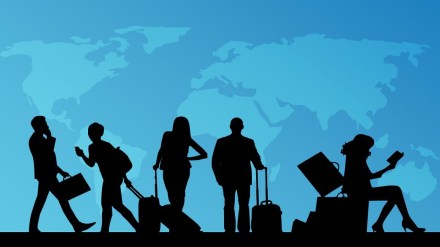Airlines’ maybe getting into add-on services like hotel bookings, tour packages, car rentals and travel insurance, as natural extension of their core business, but they don’t pose a threat to online travel agencies (OTAs), say analysts.
The reason for the same is that travel tech startups and OTAs like MakeMyTrip, ixigo, Goibibo, Yatra, EaseMyTrip and Cleartrip, are in a much better position to provide broader offerings at more competitive prices. Simply put, this is their core operations as opposed to that of airlines.
“While small OTAs may see this (airlines) as direct competition, established travel tech companies such as Goibibo, MakeMyTrip, EaseMyTrip, and Yatra are not necessarily pressured by this trend,” Prateek Tosniwal, co-founder, IVY Growth Associates and partner, MI CAPITAL Services, said.
“We need to understand that these OTAs have been around for a long time. Their widely connected network of hotels, tour operators and presence in multiple domestic and international locations ensure diverse inventory,” he added.
For instance, MakeMyTrip offers more than 155, 000 hotels worldwide ensuring more options and room for comparisons for travellers across different price points.
On their part, the airlines’ approach towards the ancillary services is limited to providing customers end-to-end services. “Expanding our offerings beyond flights to include hotels, travel packages and other services allows us to provide a complete and personalised travel experience,” an IndiGo spokesperson told Fe.
These add-ons make up an insignificant share of airlines’ total earnings. According to sources, only about 1-2% of their total revenue comes from add-on services for major airlines.
In the case of OTAs, there are some distinct advantages also. For instance, over the years they have developed a community of users who have shared their reviews and feedback, allowing new and potential users to compare options and make informed decisions.
“Their strength lies in aggregation — offering various options from different airlines in one place. Travellers can compare prices, routes, and services all in one place, which is something individual airlines can’t offer. And, this consumer behaviour isn’t going to change overnight,” Navin Honagudi, managing partner, Elev8 Venture Partners said.
Further, startups also have an edge in tech. Airlines are thus choosing to partner with startups for the fulfilment of add-on services. For example, Air India Express recently launched ‘Xpress Holidays’ in collaboration with MakeMyTrip to offer users services like booking flights, accommodation, and transport. SpiceJet has partnered with EaseMyTrip for its holiday package. Akasa Air’s Akasa Holidays services are facilitated by travel tech startup TripFactory.
“By partnering with leaders in the hospitality industry, we can offer end-to-end itinerary management with a wider range of choices,” the IndiGo spokesperson said.
Besides the established players, smaller startups are also partnering with airlines and helping them navigate complexities. Some such names include Mystifly, a B2B air-selling startup and Spotnana, a travel-as-a-service startup.
“The increased visibility and broader customer base that airlines bring can be a significant advantage for startups. By leveraging these partnerships, startups can scale their operations more rapidly than they might be able to on their own,” Bharatt Malik, Senior VP – flights and hotel business, Yatra Online said.
He added that it’s about finding the right synergies and creating win-win situations where both parties benefit and, most importantly, the travellers receive an enriched, seamless experience.
Startups also have an edge in terms of payments. According to a McKinsey report, intermediaries such as booking platforms and online travel agencies have identified payments as one of their biggest opportunities for differentiation.
